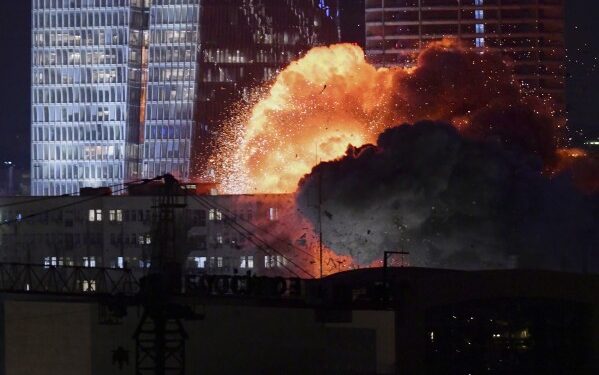Tel Aviv Justifies Strike on Tehran, Launching Operation ‘With the Strength of a Lion’
- “No Time Left”: Why Israel Says It Had to Hit Iran Now
In a move as consequential as it is controversial, the State of Israel has launched a large-scale military Operation, “With the Strength of a Lion,” against the Islamic Republic of Iran. The justification, issued by Israeli officials on June 13, is clear and forceful: “Iran is only moments away from a nuclear weapon.” But beyond the declarative urgency lies a deeper geopolitical rupture, one that raises questions about sovereignty, legitimacy, and the global security order itself.
For Israel, this is not just a military operation. It is a declaration of strategic finality. After decades of warnings, covert actions, cyber sabotage, and failed nuclear negotiations, Israel’s leadership has crossed the Rubicon. “The threat is imminent,” the statement reads. “We have no choice.”
At the heart of the Israeli position is a concept that treads the line between realism and existential fear: preemptive self-defence. Israeli intelligence assessments assert that Iran has amassed enough highly enriched uranium for at least nine nuclear bombs, with a third of the material enriched just in the past three months, coinciding, notably, with ongoing U.S.-Iran diplomatic efforts. In Tel Aviv’s view, diplomacy has become a smokescreen; the time for talk has expired.
“It Is Not the People We Target, But the Program”
Israel’s statement insists on moral clarity. It draws a stark distinction between the Iranian regime and its people. “Israel is not targeting the Iranian people, rather the radical forces that threaten its security,” it claims. The strike is described as precise, focused exclusively on nuclear infrastructure and military assets tied to Tehran’s weapons program. Efforts, it says, are being made to “minimise harm to uninvolved civilians.”
But this assurance, carefully worded for international consumption, sits uneasily within the context of Iran’s vast and deeply embedded nuclear infrastructure. In any modern state, especially one as security-conscious as Iran, such facilities are not isolated installations—they are interwoven with research institutions, military command hubs, and urban populations. The fog of war does not always make for clean lines.
Precedent or Provocation?
If Israel’s claims are accurate, that Iran was on the cusp of deploying a nuclear weapon, then the operation may find tacit support from allies who have quietly feared Iran’s breakout capability but hesitated to act. Yet, the legal and moral implications are profound.
Can one sovereign nation unilaterally strike another based on a projected timeline of threat? Does the imminent risk of a nuclear weapon justify bypassing multilateral institutions like the IAEA and UN? And more importantly, what global precedent does this set for future preventive wars?
For critics, Israel’s action reflects a dangerous breakdown in the rules-based order. Iran, though widely mistrusted, is still a UN member state, a signatory to the Non-Proliferation Treaty (albeit with a controversial record), and subject to international inspections. “Unilateralism is not a strategy,” one European diplomat was quoted as saying anonymously. “It is a breakdown of order.”
A Doctrinal Duel: Existential Fear vs Ideological Hostility
But Israel’s response must also be understood against a backdrop of years of virulent threats emanating from Tehran. As documented in various public speeches and verified translations, Iran’s Supreme Leader Ayatollah Khamenei, has repeatedly called for the “elimination of the Zionist entity,” describing Israel as a “cancerous tumor” and a “terrorist base.”
From the Israeli viewpoint, this is not merely rhetorical hyperbole but a strategic doctrine—one that is matched by Iran’s funding and arming of proxy groups like Hezbollah and Hamas. The Israeli defense statement directly references this ideological framework: “The radical Iranian regime has been devoted to the destruction of the State of Israel… not just as an ideal, but as a binding directive.”
In that light, Operation “With the Strength of a Lion” may be less about military calculus than about ideological survival.
Global Silence or Global Shock?
The world now watches. The United Nations has convened an emergency session. The United States, caught between long-standing commitments to Israeli security and its efforts to revive nuclear diplomacy with Iran, faces a credibility crisis. Russia and China are already accusing Israel of “aggression under false pretense.”
Meanwhile, oil prices have surged past $120 per barrel, and maritime insurance premiums in the Strait of Hormuz have tripled. A new energy shock looms, threatening fragile global economic recovery.
A New Security Era?
Whether or not Operation “With the Strength of a Lion” succeeds in setting back Iran’s nuclear ambitions is still unclear. But what is already certain is this: Israel has reset the terms of engagement in the Middle East. Its message is unambiguous; it will not wait for history to decide its fate.
And if so, is the age of preventive war upon us?







